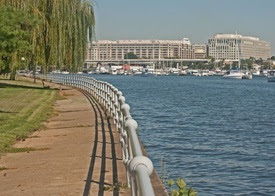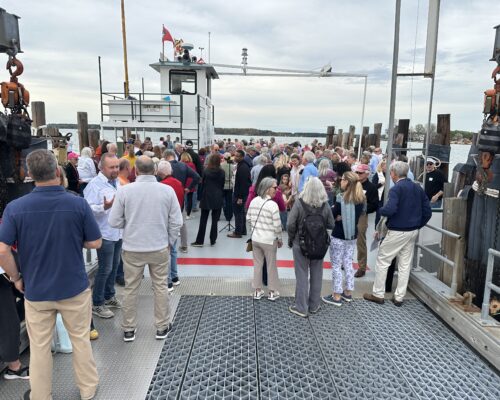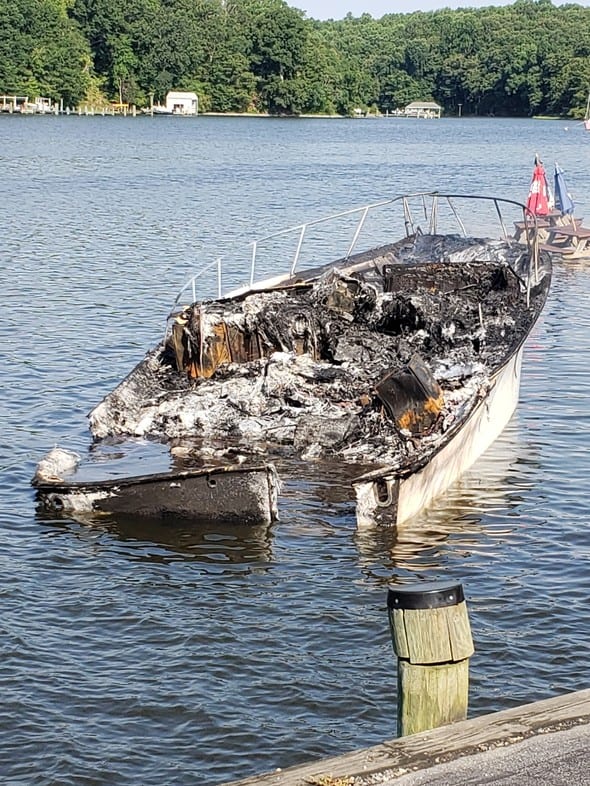A controversial Army plan to restrict access to the Washington Channel near Fort McNair is off—at least for now.
The Army had proposed a buoyed-off security zone within about a hundred meters of Ft. McNair without prior approval, banning “loitering, mooring, or anchoring.”
When Bay Bulletin covered the issue General Omar Jones from Joint Force Headquarters-National Capital Region said, “There have been both credible and specific threats to the leaders that live here on Ft. McNair and the side of the base along the Washington channel is where we’re most vulnerable.”
But D.C. Congresswoman Eleanor Holmes Norton fought the proposed rule, saying it narrows an already-narrow portion of the channel. She hosted a public meeting last year, at which she says D.C. residents overwhelmingly opposed the restrictions.
The Potomac Riverkeeper Network was concerned that the definition of “loitering” in the channel would outlaw anglers out fishing. But Gen. Jones pointed out that in an exception to the proposed rules, fishing would be permitted within the restricted area. “In my mind, fishing and loitering from a watercraft are not the same thing,” he said.
The Southwest D.C. waterfront is the site of revitalization projects including the Wharf, a mix of restaurants, shopping, living and workspaces. A spokesman for the development says the channel restrictions would be a safety concern for the community.
“The Washington channel is home to three marinas: The Wharf Marina, the Capital Yacht Club, and the Washington Marina,” Director of Technology, Marketing and Community Engagement Patrick Revord told us. He estimated that between the three, there are nearly 500 boat slips around the channel.
Now, the Army has announced it will pause the proposal, telling Bay Bulletin it will instead zero in on technology-based security meausures.
“”The U.S. Army remains focused on leveraging technological solutions along the Fort McNair waterfront and interagency partner support for detection, reporting and interdiction to protect those who live and work on the installation,” says a spokesperson from the U.S. Army Military District of Washington.
The Army says military efforts will focus on placing detection systems and using technological detection that won’t impede on boat traffic to bring security measures along the seawall in line with the rest of the base’s perimeter.
Norton says she’s pleased, but her efforts won’t stop here—she’ll continue working to get the proposed rule formally withdrawn and is trying to pass a bill blocking any rules that restrict access to the channel. Her bill passed the House Committee on Transportation and Infrastructure last year, but didn’t get any further.
For its part, the Army reiterates its desire to work together with the D.C. community.
“The U.S. Army continues to work in a spirit of partnership and cooperation with multiple local agencies and elected leaders to preserve the functionality of the waterway for local community residents, while also ensuring the necessary levels of perimeter security are in place.”
-Meg Walburn Viviano




